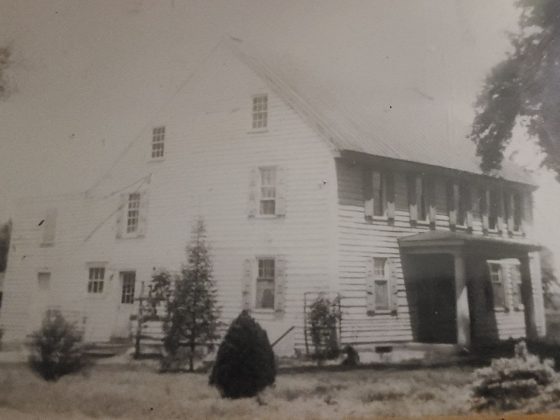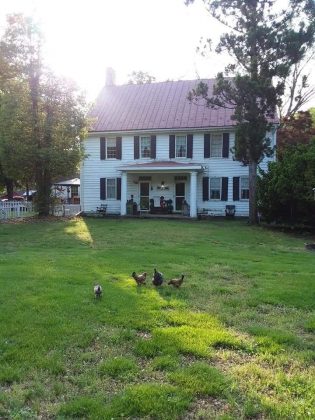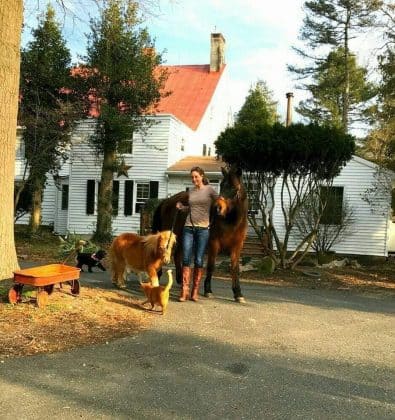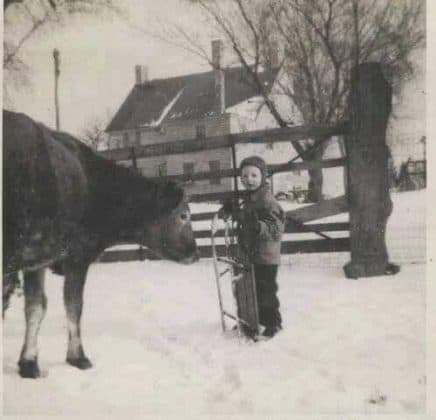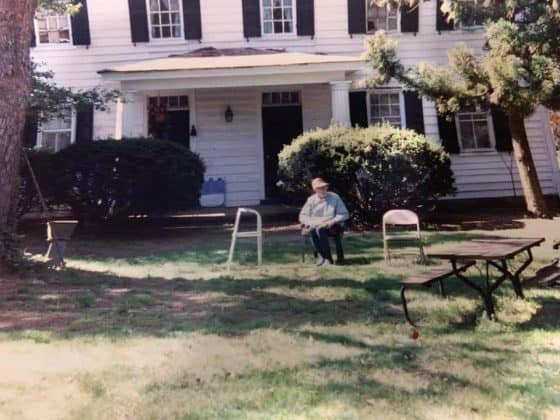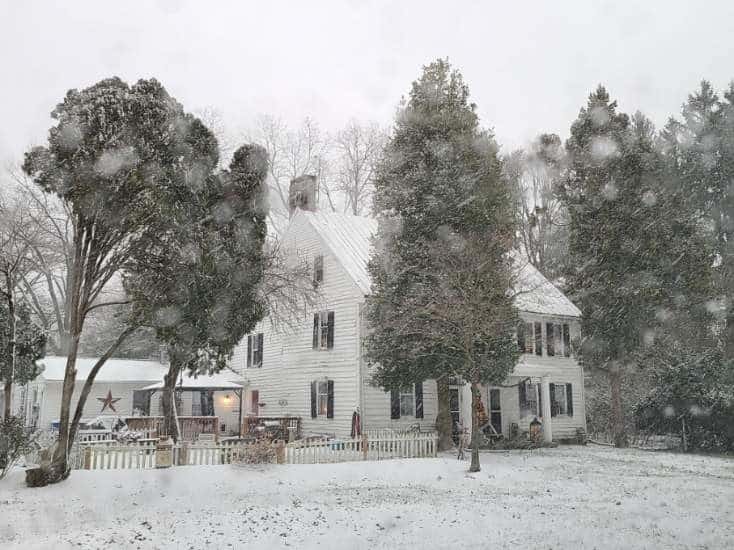
When Brian Carns climbed into his historic farmhouse’s attic, he found thousands of treasures.
Old film rolls, art glass, antiques and a hidden door that leads through the walls to a trap door in the roof. The many objects, artifacts collected by his family for nearly a century, all tell a story.
One recently developed video shows Carns’ father Robert and grandfather Albert swimming in the Mullica River in 1949. Another shows Robert as a child, playing with the farm’s pet owl.
“I had heard stories, but never never actually got to see the stuff because, well, when you’re younger, you really don’t care,” Carns said. “As you get older — in my 40s now — you start to reflect on your life.”
The film rolls, Carns said, mirror the life he and his siblings still have on the farm. The 225 acre Medford property is home to a myriad of animals, including cats, skunks, horses, deer and chickens. Carns’ sister Heather still lives on the property and is getting ready to welcome a fourth-generation Carns baby to the farm.
In the 1930s, Albert Carns, who passed away in 1999, bought the old dairy farm as an escape from his life in the then-bustling Haddon Heights. He used the space to rescue injured animals, sell Christmas trees and raise his son.
The surviving family has worked to keep Albert’s dream alive. Even those who don’t live on the farm stay close by, help take care of the animals and grow the trees that still make their way into Medford homes each holiday season. They share their stories on the Facebook page Carns Family Farm.
The farmhouse, built in the 1780s and rumored to have been a stop on the Underground Railroad, is one of the last of Medford’s old farming communities. But Carns and his family struggle to keep it alive.
“Farmers will say they’re rich in land and poor in the bank,” he acknowledged. . “We’re still just trying to figure out how to make this work in the future.”
As Medford grows, the family has had offers from developers who want to take over the farm. They always say no.
“Even if they offered $10 million, I would have to leave the state because I wouldn’t want to see my property be developed,” Carns explained. “It would be like your family being murdered.”
Heather Carns said her family used to bring in extra money by selling firewood from a stand on the property, something the township recently restricted.
She remembers spending her childhood exploring the outdoors. Her grandfather would teach her about every animal they came across and point out constellations in the night sky.
“I’m really looking forward to raising my daughter here, trying to give her a little bit of what my grandfather instilled in me.” Heather said. “It’s really important because of the huge influence my grandfather had on my life.
“He would have wanted this for the family.”



